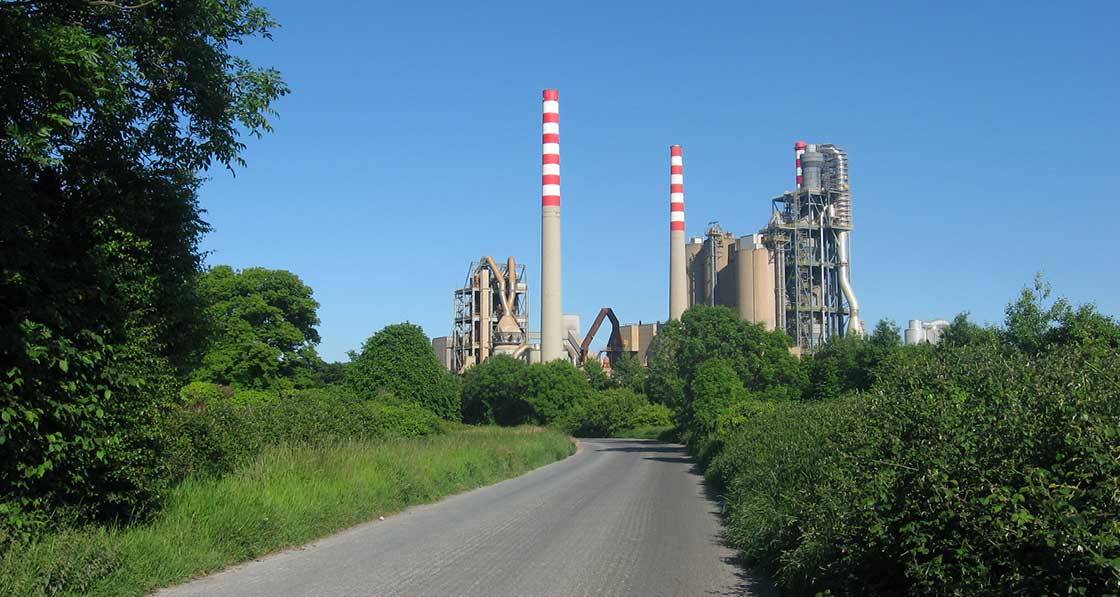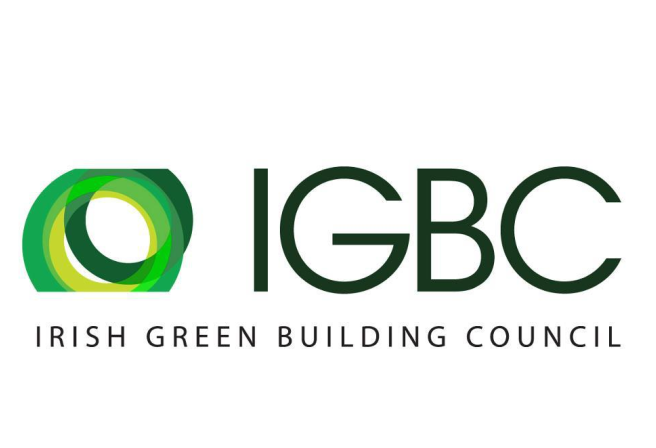
- Government
- Posted
Most polluting cements ruled out in Irish public procurement
The new rules include a number of key provisions designed to drive down emissions from cement and concrete – including requirements to:
- drive down the main source of CO2 in cement, clinker, by 30 per cent, and avoid high carbon CEM I cements
- require Environmental Product Declarations (EPDs) when procuring cement and concrete
- avoid the over-specification of materials
- carry out whole life-cycle greenhouse gas emissions assessments for new infrastructure projects and buildings above certain budget thresholds – with the thresholds tightening over a phased timeline from 2024-2026.
The Minister for Enterprise, Peter Burke, will write to public bodies in the coming weeks to advise them of the new guidance.
The mandated 30 per cent target for clinker reduction is a European first for Ireland. A mix of limestone and minerals heated in kilns to temperatures of circa 1450C, clinker is the source of over 90 per cent of emissions from cement. In Ireland, cement currently averages almost 85 per cent clinker.
Dublin-based Ecocem, Europe’s leading provider of low carbon cement solutions, welcomed the announcement as a significant shift that sends a clear message to the construction industry to invest in low carbon products.
Ecocem director of public affairs and sustainability, Susan McGarry, said: "The cement sector is responsible for almost 5 per cent of Ireland’s emissions, and has a major role to play in decarbonising the construction industry. Public procurement requirements on the use of low carbon cement are essential to ensure sustainable delivery of Ireland’s infrastructure. At Ecocem, we have long been calling for mandatory use of low carbon cements, which have enormous potential to reduce emissions at scale. The government’s mandatory target of 30 per cent reduction in clinker is a solid start on which we as an industry can build.
"Low carbon cement technology is available to be deployed immediately, offering a scalable, cost-efficient solution to cement and concrete’s carbon problem. The responsibility now lies with public sector decision-makers to engage with the private sector in its efforts to reduce the carbon impact of construction."
The announcement from the Department of Enterprise, Trade and Employment (DETE) followed the publication of the report “Reducing embodied carbon in cement and concrete through Public Procurement in Ireland”, which details detailing technical and procedural recommendations for public procurement including:
- Reducing the carbon impact of public sector projects involving construction
- Reducing the carbon impact of the procurement of cement and concrete
- Doing more with less by using less concrete and less cement and by designing, specifying, and managing products on site better.
The report was commissioned by DETE on behalf of the Cement and Construction Sector Decarbonisation Working Group.
The report was produced by RPS Consultancy services, project lead, together with RKD architects and EY, providing additional expertise in product specifications and economic analysis respectively.
The report provides a technical and high-quality analysis, based on international experience, knowledge of the sector, and extensive stakeholder engagement. It outlines the consultants' technical and procedural recommendations as to their recommended public procurement approach required, to both impactfully reduce the carbon impact of public sector projects involving construction, and the procurement of cement and concrete, and to motivate the cement sector to invest in the production of decarbonised product.
Industry emissions in Ireland account for roughly 10 per cent of national Greenhouse Gas (GHG) emissions. Under the Sectoral Emissions Ceilings, the Minister of Enterprise has responsibility to reduce emissions from industry by 20 per cent by 2025 and 35 per cent by 2030.
Under Climate Action Plan 2021, DETE established the cross-departmental Cement and Construction Sector Decarbonisation Working Group. Its members include Department of Housing, Local Government and Heritage (DHLHG), Department of the Environment, Climate and Communications (DECC), Department of Finance, Office of Government Procurement (OGP), Office of Public Works (OPW), Sustainable Energy Authority of Ireland (SEAI), Enterprise Ireland, Department of the Taoiseach, the Land Development Agency, Irish Green Building Council, and others. The working group progresses a ‘multi-pronged’ approach to motivating and facilitating the cement and construction sector to decarbonises. Activities include detailed engagement with the cement sector through Enterprise Ireland, engagement with research on innovation in the formulation and production of cement and concrete products, alignment with the Timber in Construction Steering Group, Modern Methods of Construction (MMC) policy, and policy measures to increase circularity in the construction sector, and re-use of cement and concrete products where possible.
The guidance to public bodies will be provided in the coming weeks, and require that, for projects commencing design from September 2024:
- public bodies should seek an Environmental Product Declaration, to an EN 15804 standard, or equivalent, when directly procuring cement or concrete products
- public bodies should be guided by best-practice carbon management design approaches, including avoidance of over-specification of materials, when undertaking or procuring construction projects
- high-carbon CEM I cement products should not be procured by public bodies, or used in publicly produced construction projects, except where a technical justification is made.
- concrete products procured by public bodies, or used in publicly produced construction projects, including poured or pre-cast products, should in general specify a minimum of 30 per cent clinker replacement, consistent with IS EN 206, except where a technical justification is made
- public bodies procuring infrastructure projects (construction other than buildings) in receipt of exchequer funding in excess of €60 million, should produce or procure a Whole Life-Cycle Greenhouse Gas Emissions assessment for their project. From 1 January 2026, projects in receipt of exchequer funding in excess of €10 million should produce such an assessment. Projects below this scale should also consider implementing this assessment
- from 1 September 2025, public bodies that are commencing design for new buildings for projects in receipt of exchequer funding in excess of €10 million in the case of non-residential buildings, or in excess of €60 million in the case of residential buildings, should produce or procure a Whole Life-Cycle Greenhouse Gas Emissions assessment in accordance technical guidance to be provided by SEAI in 2025. From 1 June 2026, projects in receipt of exchequer funding in excess of €5 million in the case of non-residential buildings, or more than €30 million in the case of residential buildings, should produce such an assessment. Projects below this scale should also consider implementing this assessment.
To view the report, click here.







